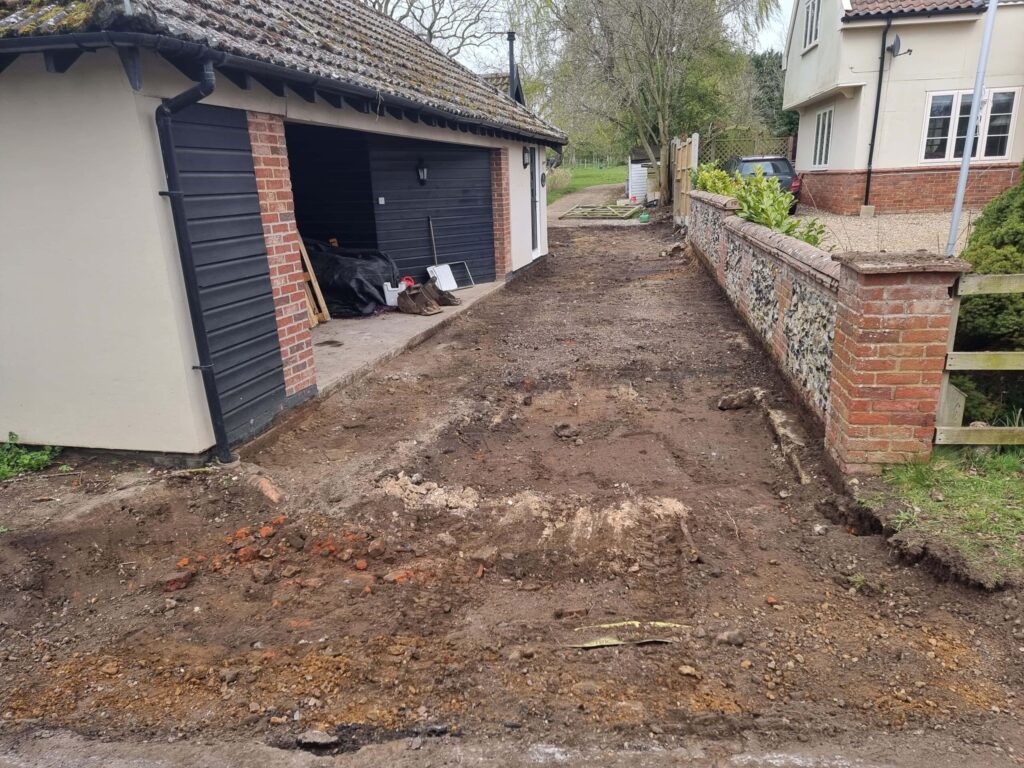Paving the Way for Sustainability: Tarmac Farm Roads Supporting Organic and Regenerative Farming Practices
Introduction: In agriculture, the shift towards organic and regenerative farming practices is gaining momentum, driven by a growing recognition of the importance of sustainable land management and environmental stewardship. Tarmac farm roads support these practices by providing essential access to agricultural properties while minimising environmental impact. In this guide, we’ll explore how tarmac farm roads can facilitate organic and regenerative farming practices and contribute to the sustainability of rural landscapes.
Enhancing Soil Health:
- Organic and regenerative farming practices prioritise soil health as a foundation for sustainable agriculture. Tarmac farm roads help protect soil integrity by providing stable and reliable access to fields, minimising soil compaction and erosion caused by heavy machinery and vehicle traffic. With proper road construction and maintenance, tarmac farm roads can preserve soil structure, improve water infiltration, and promote microbial activity, supporting healthy soil ecosystems and enhancing agricultural productivity.
Minimising Chemical Runoff:
- One of the key principles of organic farming is reducing reliance on synthetic chemicals and fertilisers to minimise environmental impact and promote natural soil fertility. Tarmac farm roads help prevent chemical runoff by providing an impenetrable barrier that prevents rainwater from washing away fertilisers, pesticides, and other agricultural inputs into nearby waterways. By containing runoff and directing it towards designated drainage systems, tarmac farm roads help protect water quality and aquatic habitats, supporting ecological balance in rural landscapes.
Facilitating Crop Rotation and Diversification:
- Crop rotation and diversification are essential components of organic and regenerative farming systems, helping to improve soil health, reduce pest pressure, and enhance overall resilience to environmental stressors. Tarmac farm roads enable farmers to easily access different fields and crop rotation plots, facilitating efficient management practices such as planting, harvesting, and soil amendments. With well-maintained roads, farmers can implement diverse cropping systems, cover cropping, and rotational grazing strategies to maximise ecosystem services and optimise agricultural productivity.
Supporting Wildlife Habitat:
- Organic and regenerative farming practices prioritise biodiversity conservation and habitat restoration to create thriving ecosystems that support pollinators, beneficial insects, and wildlife. Tarmac farm roads can serve as wildlife corridors, connecting fragmented habitats and providing refuge for native flora and fauna. By incorporating green infrastructure features such as vegetated buffers, wildlife-friendly plantings, and habitat restoration areas along roadways, farmers can enhance biodiversity, promote ecosystem resilience, and create valuable wildlife habitat in agricultural landscapes.
Fostering Community Resilience:
- Tarmac farm roads foster community resilience by providing access to local food systems, supporting rural economies, and promoting social connections among farmers, producers, and consumers. Organic and regenerative farming practices emphasise local food production, direct marketing, and community-supported agriculture (CSA) initiatives, which rely on efficient transportation networks to distribute fresh produce to nearby markets and consumers. Tarmac farm roads enable farmers to connect with customers, collaborate with neighbouring farms, and build resilient networks that enhance community well-being and food security.
Conclusion: Tarmac farm roads are essential infrastructure components that support organic and regenerative farming practices, promote environmental sustainability, and contribute to the resilience of rural landscapes. By providing stable access to agricultural properties, minimising environmental impact, and facilitating sustainable land management practices, tarmac farm roads play a vital role in advancing the principles of organic and regenerative agriculture. With continued investment in sustainable road infrastructure and support for innovative farming practices, we can pave the way for a more resilient, productive, and sustainable agricultural future.
Call us on: 01953 660 780
Click here to find out more about Watton Driveway Solutions
Click here to complete our contact form and see how we can help with your driveway needs.

